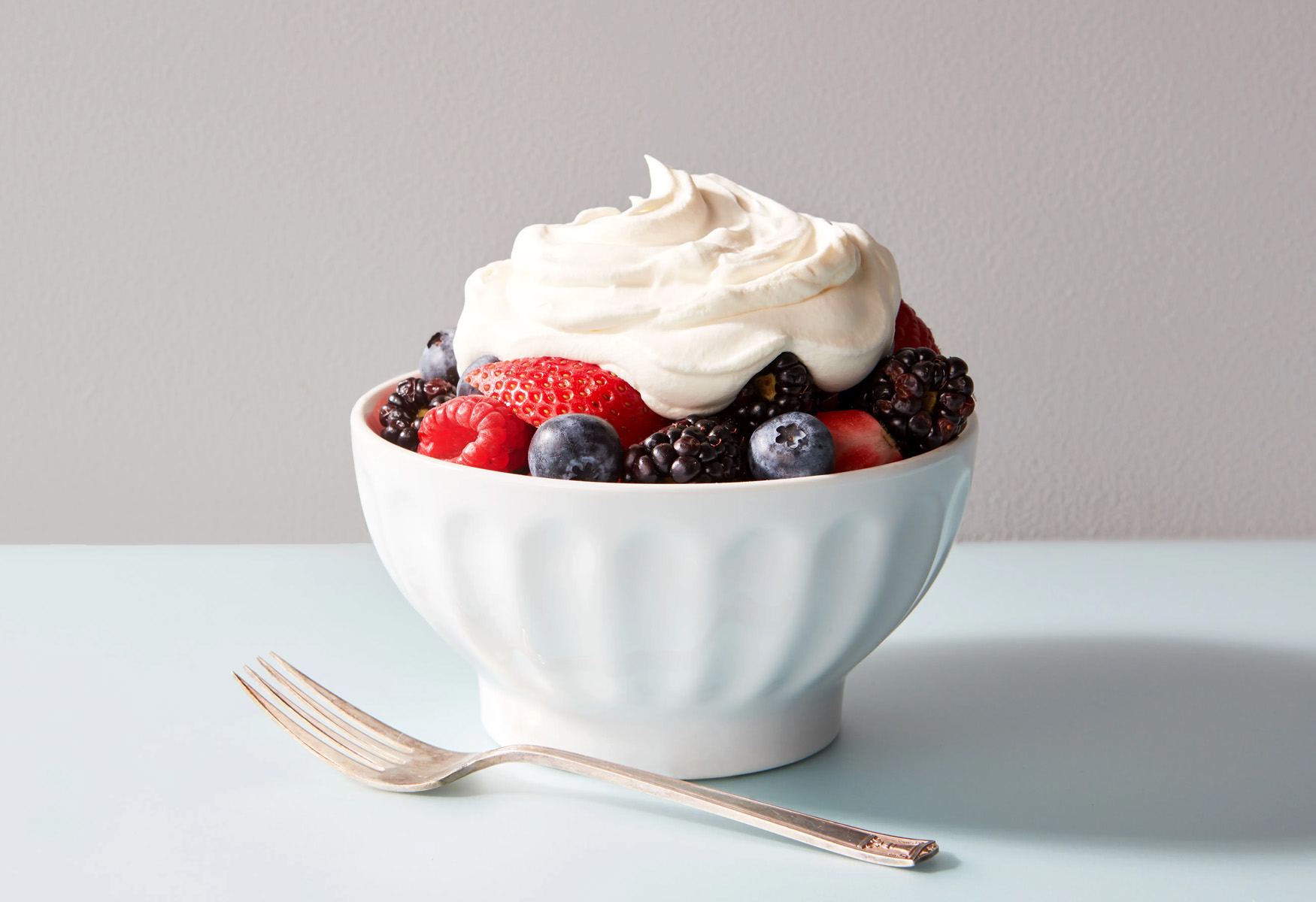
Whipped cream is a popular topping that adds a touch of decadence to countless desserts. Whether it’s a slice of pie, a scone, or a cup of hot chocolate, a dollop of creamy goodness can elevate any treat. But beyond its indulgent taste and fluffy texture, have you ever wondered about the nutritional value of whipped cream?
In this article, we will delve into the world of whipped cream nutrition facts. We will explore its calorie content, fat and sugar levels, as well as its vitamin and mineral composition. You may be surprised to discover that indulging in this delectable topping can come with both pros and cons for your health. So, if you’re curious to learn more about the nutritional profile of whipped cream, keep reading!
Key Takeaways:
- Whipped cream is a low-calorie, calcium-rich, and cholesterol-free topping that adds flavor and energy to desserts. It’s a guilt-free indulgence suitable for those watching their calories or looking to enhance their dessert experience.
- Enjoy the creamy, high-fat goodness of whipped cream, which also provides small amounts of essential vitamins and protein. It’s a versatile and tasty option for adding a delightful touch to your favorite treats.
Whipped Cream is Low in Calories
Did you know that whipped cream is surprisingly low in calories? With just around 52 calories per serving, it can be a guilt-free addition to your favorite desserts.
Whipped Cream is Rich in Calcium
Calcium is essential for maintaining strong bones and teeth. Whipped cream contains a good amount of calcium, with approximately 17 milligrams per serving.
Whipped Cream is a Source of Vitamin A
Vitamin A is important for maintaining healthy vision and a strong immune system. A serving of whipped cream provides small amounts of this essential vitamin.
Whipped Cream Contains Trace Amounts of Protein
While not a significant source of protein, whipped cream does contain small amounts. Protein is important for muscle growth and repair.
Whipped Cream is Low in Carbohydrates
Carbohydrates can contribute to weight gain if consumed in excess. Whipped cream is relatively low in carbs, making it suitable for those following a low-carb diet.
Whipped Cream is High in Fat
Whipped cream is known for its rich and creamy texture, thanks to its high fat content. This makes it a decadent addition to desserts.
Whipped Cream Contains No Cholesterol
If you’re watching your cholesterol intake, you’ll be pleased to know that whipped cream is cholesterol-free.
Whipped Cream Provides Energy
Due to its fat content, whipped cream is a good source of energy. It can give you a quick boost when you need it.
Whipped Cream is Low in Sodium
Excessive sodium intake can lead to high blood pressure. Fortunately, whipped cream is low in sodium, making it a suitable choice for those with hypertension.
Whipped Cream is Free from Artificial Sweeteners
Unlike some other dessert toppings, whipped cream is typically made using natural ingredients and does not contain artificial sweeteners.
Whipped Cream Enhances Flavor
Let’s not forget the most important fact – whipped cream adds a delightful, creamy touch to any dessert. Its smooth texture and subtle sweetness can take your favorite treats to the next level!
Conclusion
In conclusion, whipped cream can be a delicious addition to many desserts and beverages. While it is high in calories and fat, it can also provide a small amount of calcium and vitamin A. Moderation is key when consuming whipped cream, especially for those watching their calorie and fat intake. There are also healthier alternatives available, such as using whipped coconut cream or opting for a lighter, low-fat version of whipped cream. It’s important to be mindful of portion sizes and make informed choices when enjoying this creamy and indulgent treat.
FAQs
1. Is whipped cream high in calories?
Yes, whipped cream is high in calories. On average, a tablespoon of whipped cream contains around 50 calories.
2. Does whipped cream contain any nutrients?
While whipped cream is not a significant source of nutrients, it does provide a small amount of calcium and vitamin A.
3. Can whipped cream be a part of a healthy diet?
Whipped cream should be consumed in moderation as it is high in calories and fat. It can be enjoyed as an occasional treat as part of a balanced diet.
4. Are there any healthier alternatives to traditional whipped cream?
Yes, there are healthier alternatives available. Whipped coconut cream is a dairy-free option, and there are also lighter, low-fat versions of whipped cream on the market.
5. Can whipped cream be used as a topping for other dishes?
Absolutely! Whipped cream is a versatile topping and can be used on various desserts, hot beverages, pancakes, and waffles.
Was this page helpful?
Our commitment to delivering trustworthy and engaging content is at the heart of what we do. Each fact on our site is contributed by real users like you, bringing a wealth of diverse insights and information. To ensure the highest standards of accuracy and reliability, our dedicated editors meticulously review each submission. This process guarantees that the facts we share are not only fascinating but also credible. Trust in our commitment to quality and authenticity as you explore and learn with us.


